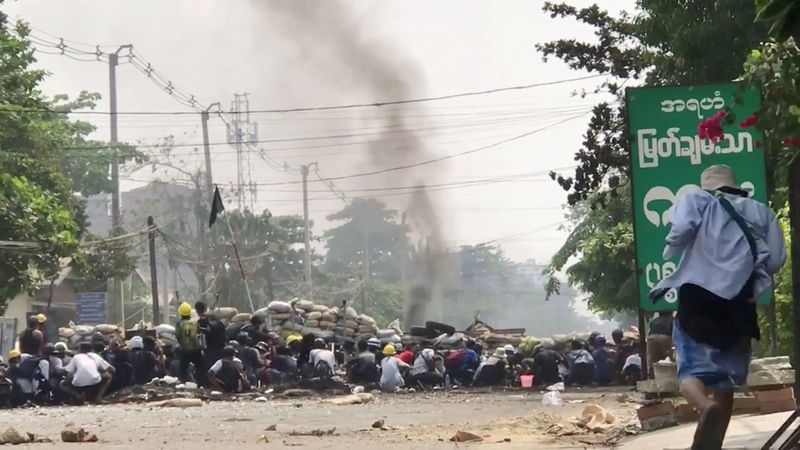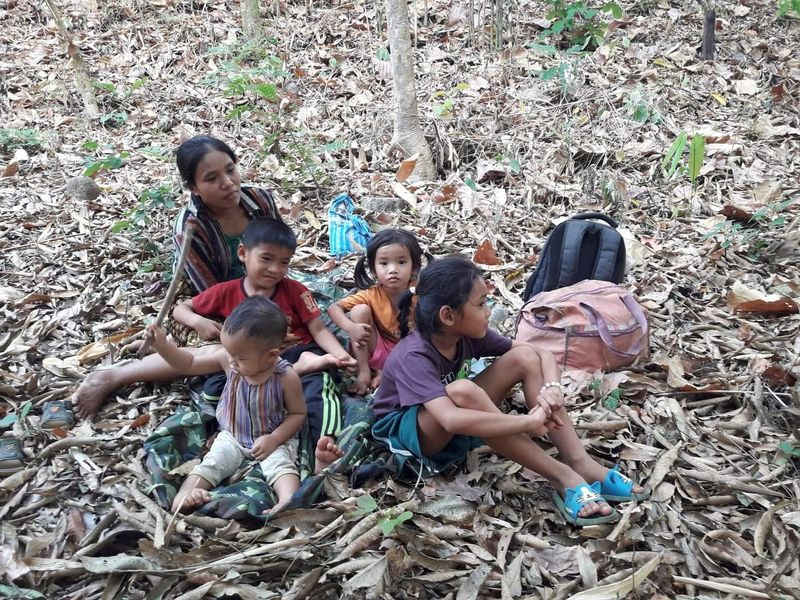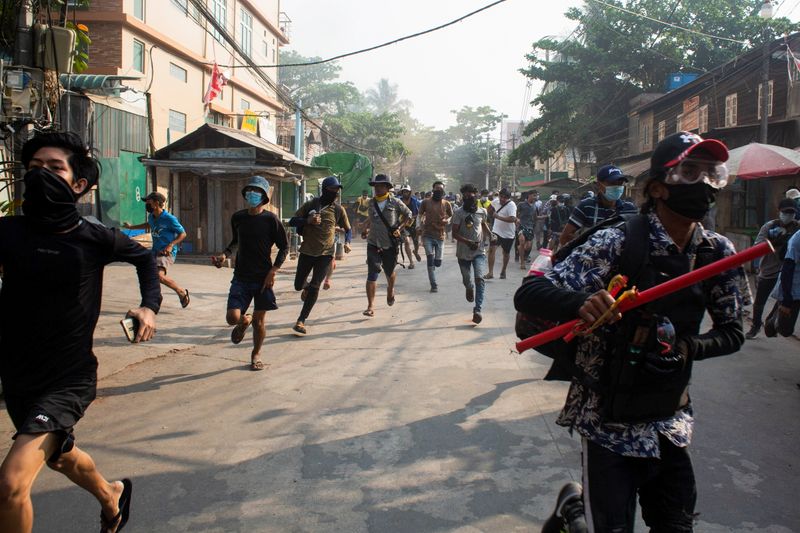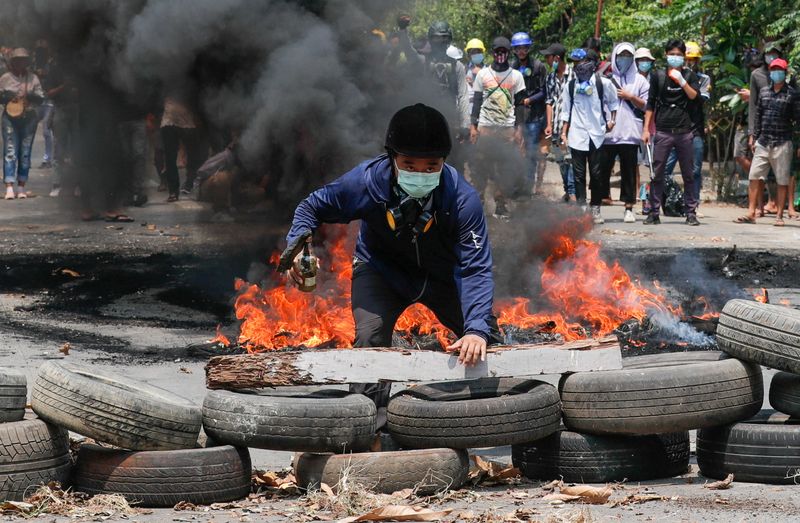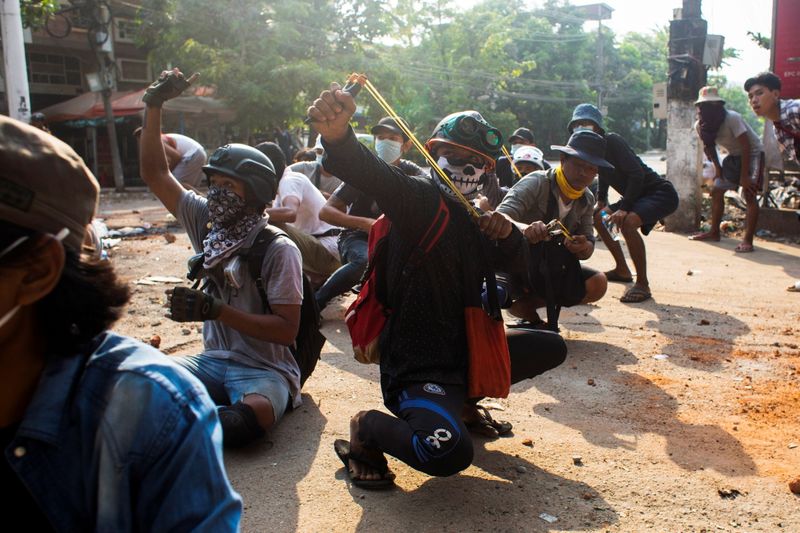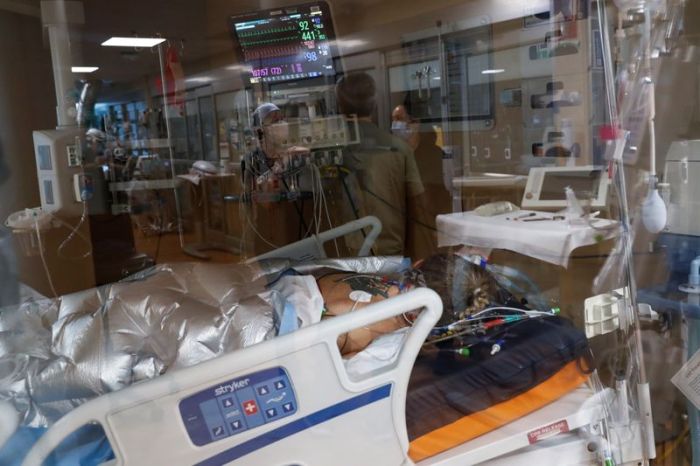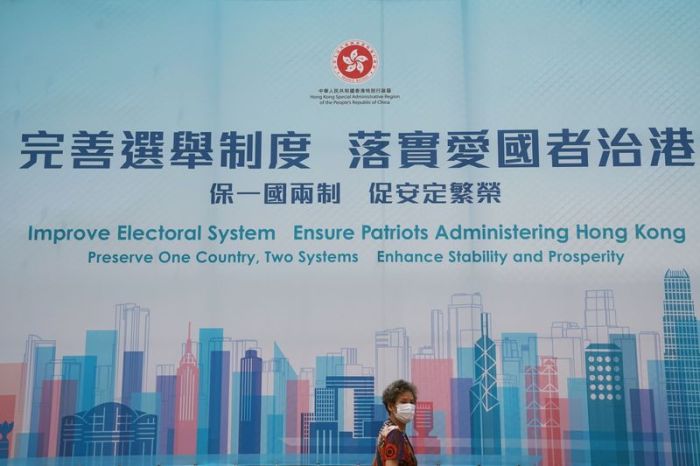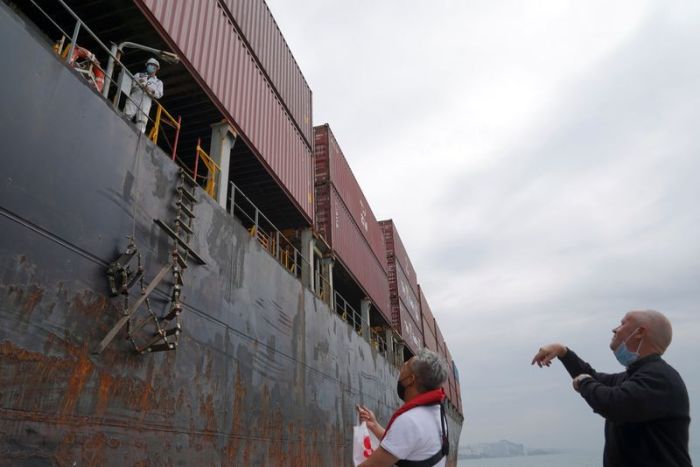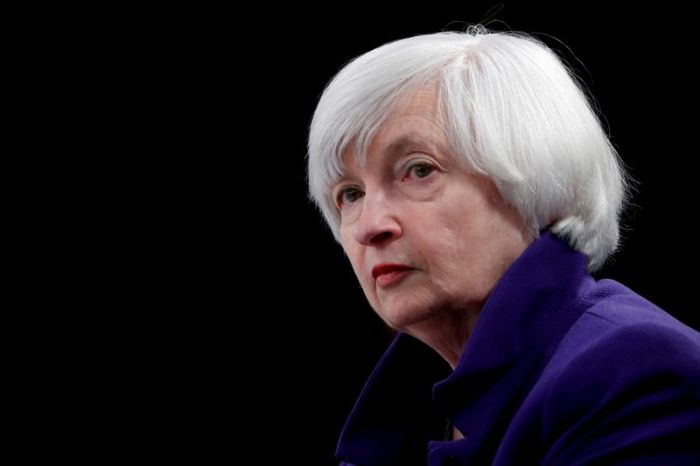(Reuters) -Myanmar’s security forces have killed at least 510 civilians in nearly two months of efforts to stop protests against a Feb. 1 coup, an advocacy group said on Monday, as thousands of people took to the streets again despite the growing toll.
Another 14 civilians were killed on Monday, the Assistance Association for Political Prisoners (AAPP) said, as it also updated figures for previous days. The total killed on Saturday, the bloodiest day so far, had risen to 141, figures showed.
The White House condemned the killings of civilians as an “abhorrent” use of lethal force and renewed a call for the restoration of democracy, while U.N. Secretary-General Antonio Guterres urged Myanmar’s generals to stop the killings and repression of demonstrations.
Monday’s dead included at least eight in the South Dagon suburb of Myanmar’s main city, Yangon, the AAPP said.
Security forces there fired a much heavier-calibre weapon than usual to clear a barricade of sand bags, witnesses said and a video clip showed. It was not immediately clear what type, although a community group posted a picture of a soldier with a grenade launcher.
State television said security forces used “riot weapons” to disperse a crowd of “violent terrorist people” who were destroying a pavement and one man was wounded.
Police and a junta spokesman did not answer calls seeking comment.
Two people were also killed in shooting in the central town of Myingyan, student leader Moe Myint Hein told Reuters.
Despite the violence, crowds turned out in towns across the country, according to media and social media posts.
One of the main groups behind the protests, the General Strike Committee of Nationalities, called in an open letter on Facebook for ethnic minority forces to help those standing up to the “unfair oppression” of the military.
“It is necessary for the ethnic armed organisations to collectively protect the people,” the group said.
‘HEARTLESS ACT’
Insurgents from different ethnic groups have battled the central government for decades for greater autonomy. Though many groups have agreed to ceasefires, fighting has flared in recent days between the army and forces in both the east and north.
Heavy clashes erupted on the weekend near the Thai border between the army and fighters from Myanmar’s oldest ethnic minority force, the Karen National Union (KNU).
About 3,000 villagers fled to Thailand when military jets bombed a KNU area after a KNU force overran an army outpost and killed 10 people, an activist group and media said.
Thai authorities denied accounts by activist groups that more than 2,000 refugees had been forced back, but a local official said it was government policy for the army to block them at the border and deny access to outside aid groups.
“Thailand’s heartless and illegal act must stop now,” Sunai Phasuk, senior researcher on Thailand for Human Rights Watch, wrote on Twitter.
Earlier, Thai Prime Minister Prayuth Chan-ocha said he wanted Myanmar’s latest problems to remain there, while dismissing accusations Thailand backed the junta.
“We don’t want to have an exodus, evacuation into our territory but we will observe human rights,” Prayuth told reporters in Bangkok.
In Myanmar’s north, fighting erupted on Sunday in the jade-mining area of Hpakant when Kachin Independence Army (KIA) fighters attacked a police station, Kachinwaves media reported.
GRIP ON POWER
Both the KNU and KIA have expressed support for the anti-coup movement and called on the army stop the violence against civilian protesters.
Myanmar’s military has for decades justified its grip on power by saying it is the only institution capable of preserving national unity. It seized power saying that November elections won by Nobel laureate Aung San Suu Kyi’s party were fraudulent, an assertion dismissed by the election commission.
Suu Kyi remains in detention at an undisclosed location and many other figures in her party are also in custody.
When asked for his message to Myanmar’s generals, Guterres told reporters: “Stop the killings, stop the repression of the demonstrations, release the political prisoners, and return power to those that have legitimate right to exercise it.”
U.N. Special Rapporteur for Myanmar Tom Andrews said the army was carrying out “mass murder”. U.S. Trade Representative Katherine Tai said the United States was suspending all trade engagement with Myanmar until the return of a democratically elected government.
But foreign criticism and Western sanctions have failed to sway the generals.
China and India have declined to condemn the coup and Russia has maintained its close ties with a visit by a Deputy Defence Minister Alexander Fomin and a pledge to beef up military ties. The Kremlin said Russia’s long and constructive ties with Myanmar did not signify its approval of “tragic events” there.
(Reporting by Reuters Staff; Additional reporting by Jeff Mason and Steve Holland in Washington and Steve Scherer in Ottawa, Writing by Ed Davies, Robert Birsel; Editing by Stephen Coates, Nick Macfie, William Maclean)

